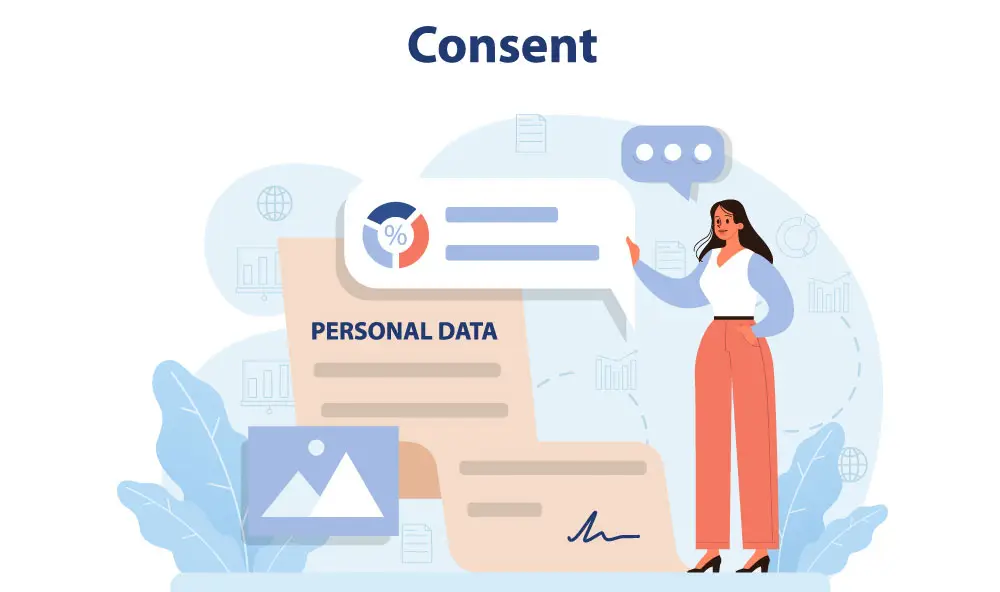- Mon - Fri: 8.30 AM - 5:00 PM
- 26565 Agoura Rd., 200, Calabasas, CA 91302
- 818-884-8075

TCPA One-to-One Consent Rule
On January 27th, 2025, the Federal Communication Commission’s (FCC) Telephone Consumer Protection Act (TCPA) will institute a new rule that will change the lead generation industry for the foreseeable future. This update, which is called the “one-to-one consent rule”, states that companies that collect personal information online must obtain prior express written consent from the consumer for each entity that intends to use it. This shift in consumer protection policy represents a substantially more strict approach to regulating data collection and marketing communications.
For Legal Brand Marketing and all other lead generation companies in the industry, this rule is an opportunity to innovate how we do business. It is critical that we, as an industry, understand what this change to the TCPA means, how to prepare for its arrival, and the necessary steps to remain compliant.
The TCPA Update – One-to-One Consent
The Telephone Consumer Protection Act was passed by the United States Congress in 1991 for the express purpose of curtailing unwanted marketing communications. Since the 90s, the means of communication have changed, from phone calls and faxes to text messages and emails. The TCPA is as dynamic as the telemarketing tools it aims to regulate, which is why the upcoming one-to-one consent rule was ratified.
Here is what the change to the law means:
- Prior express written consent must be obtained separately for each company that will contact the consumer. Consent can no longer be treated broadly and shared between multiple entities. If a person consents to be contacted by “Company A,” then that same consent cannot be extended to “Company B.” Failing to acquire that express written consent will put you in violation of the TCPA.
- Written consent must be specific and individualized. The mechanisms that operate as consent forms for the individual user must identify the company that will contact that consumer. The process of acquiring that consent must be as clear as possible and heavily documented.
This shifts the responsibility of consent collection squarely into the hands of the businesses that are interested in acquiring that authorization from users, which raises the standard of business practice for everyone.
How Legal Brand Marketing is Preparing for the TCPA Rule in 2025
For every corporate entity that wishes to remain in business, the new one-to-one consent rule demands a complete transformation of consent management systems. While this might seem like a herculean undertaking, Legal Brand Marketing is leading the charge by making every necessary adjustment to our processes in order to remain compliant. Here are the steps that we’re taking:
1. Updating Consumer Consent Forms
First, we’ve focused on the “how” – how have we historically collected consent from consumers and how can we adjust our format as well as our language to ensure TCPA compliance?
- Consent must now be given individually to each entity contacting the consumer. This will require collecting consent on behalf of our firms to utilize the consumer’s information. We are updating our online forms to present the consumer with the firm that will be contacting them including the means of contact by the firm, i.e. phone call, email, SMS, robo-dialing, etc. This ensures that our firms can still use their method of contact while remaining compliant.
- Generalized consent options that may have once permitted multiple entities to collect information must be completely removed from the consent acquisition process. We are replacing the prior opt-in language with the required consent language below:
By clicking “I Agree” below I am providing my ESIGN signature and express written consent agreement to permit [website] and the company, or companies, listed below, and parties calling on their behalf, to contact me at the number and email provided below for marketing purposes including through the use of automated technology, SMS/MMS/RCS messages, AI generative voice, and prerecorded and/or artificial voice messages. I acknowledge my consent is not required to obtain any good or service and to be connected with sellers that can fit my needs without providing content I can call [LBM phone number].
The company that will contact me: {Law Firm}
My phone number where this company may contact me is: {Consumer phone}
My email where this company may contact me is: {Consumer email}
2. Partner Compliance
Legal Brand Marketing works closely with several third-party service providers, which presents an obvious issue – although we can take all of the necessary steps to ensure that our internal processes are TCPA compliant, what of our partners? We will have ongoing compliance audits necessary, especially during the weeks before the one-to-one consent rule is active. We are employing auditing strategies throughout the remainder of the year to ensure all publishers and partners are TCPA-compliant.
3. Enhance Transparency for Consumers
Transparency is a tool for Legal Brand Marketing to guarantee consumer trust and operate within the bounds of the one-to-one consent rule. Here is how we have utilized transparency to assist in our compliance efforts:
- Privacy policies will become dated once the FCC’s one-to-one consent rule takes effect in 2025. We are updating our website privacy policies and providing consumers with a clear and legible blueprint that outlines our intentions with the users’ data is an effective first step to enhance transparency.
- A Do Not Call policy will be essential to maintain TCPA compliance. Specifically, it addresses the need to respect consumers’ preferences regarding unsolicited phone calls. When someone adds their phone number to a DNC list, it signals that they do not want to receive telemarketing calls. Legal Brand Marketing respects the preferences of consumers and does not contact consumers who have opted out of being contacted by us or our network.
- We are ensuring that all information relating to the collection and use of user data is easily accessible on our business websites. Being forthcoming about the way our business is navigating the one-to-one consent rule will protect our clients from any potential TCPA violations in the future.
4. Consent-Based Software
Legal Brand Marketing has implemented consent-based software within our contact forms and lead filtering to ensure that consumer consent is recorded and consumer data with no intention of being contacted is filtered out.
- We have installed TrustedForm on all of our website forms which records consumer consent in real-time. When someone submits a form on a website (such as a contact form, sign-up form, or lead capture form), TrustedForm records that event and provides a certificate as proof of consent. This is an important tool because the TrustedForm certificate serves as evidence that the lead provided consent during the form submission.
- We have an additional layer of lead filtering through LeadConduit. It validates, appends, and normalizes lead data, improving overall lead quality. Just like with TrustedForm, LeadConduit uses TrustedForm certificates to keep non-compliant leads out. These certificates serve as proof of consent. It checks leads against lists to avoid duplicates. By verifying lead identity and contact information, LeadConduit helps eliminate fraudulent leads and known litigators. All this happens in real-time and filters the lead before it hits your inbox.
LBM is Prepared for the One-to-One Consent Rule
Legal Brand Marketing is taking strides to eliminate the possibility of non-compliance with the FCC’s most recent update to the TCPA, which secures our ability to effectively serve our clientele. By implementing individualized consent, auditing our business partners’ consent collection processes, and committing to full transparency for our consumers, Legal Brand Marketing is leading the way into the new era of lead generation.
For some, the TCPA’s one-to-one consent rule is a problem to contend with. For others, it is an opportunity to provide better service and to innovate on how business is done. If you have questions about the one-to-one consent rule or want to know about the steps we’ve taken towards compliance, please don’t hesitate to contact us. We are here to help.




